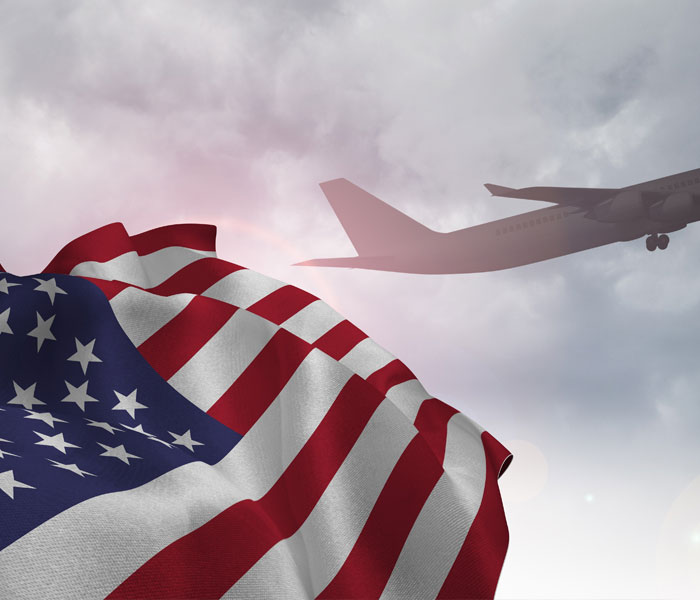
Training and certification are crucial for aviation security performance, ensuring screener competency. This blog explores their differences, significance, and why both are essential for compliance.

Training and certification are crucial for aviation security performance, ensuring screener competency. This blog explores their differences, significance, and why both are essential for compliance.

In today’s rapidly evolving aviation industry, ensuring safety and compliance is more critical than ever. Safety Management Systems provide a trusted framework to proactively manage risks, enhance operational safety, and meet both FAA regulations and international standards.

During the recent ICAO Security Week, we explored key issues like aviation cybersecurity and other emerging sector challenges. The event also marked the adoption of the Muscat Declaration on Aviation Security and Cybersecurity, charting a new path to protect global aviation.

At the recent International Security & Resilience Conference at International Security Expo, we discussed the Global Aviation Security Plan (GASeP), highlighting its key priority areas.

Wildlife management in aviation refers to the systematic and proactive measures taken to mitigate the potential hazards posed by wildlife to aircraft operations at airports and in the airspace. Download our informative infographic to learn more.

As we celebrate this year’s Social Enterprise Day on Thursday 16th November, we’re excited to shed light on the remarkable contributions of social enterprises to our communities and the world at large. In this spirit, our Head of International Operations, Clair Borrelli, showcases the distinctive journey of CAA International (CAAi), the UK Civil Aviation Authority’s very own social enterprise, and our continued impact on global aviation.

As the aviation landscape becomes more complex and the demands on professionals grow, the need for an updated training approach that transcends traditional methodologies has become greater. In our latest blog, we explore the advantages surrounding Competency-Based Training and examine what the future holds.

Earlier this week, we sat down with our Aviation Security Technical Advisor, Dorota Broom, and put together a short Q&A focusing on specific touchpoints around Aviation Security Instructor Certification.

Read our report to explore the main challenges that States, Appropriate Authorities, regulators and entities face when implementing aviation security certification systems for instructors and review the UK’s evolved approach to instructor certification.

In February 2022, all UK Air Transport Operators are mandated to implement a pilot Support Programme which includes using trained Pilot Peer volunteers. The support programme is intended to help facilitate flight crew health and wellbeing.

Read our report to understand the key takeaways from COP26, and discover what aviation regulators and National Aviation Authorities can do to help decarbonise air transport and tackle climate change.

With ICAO’s Year of Security Culture coming to an end, in this article, Nina Smith considers the importance of human performance and human factors when developing a positive, effective aviation security culture.

In this article, we will explore ICAO’s recommendation for the unlimited validity of the Level 6 certificate and some concerns that may lead member States to implement recurrent assessment for the ICAO Expert Level 6 language proficiency. We will also explore some options that can help States ensure reliable testing.

In June 2019, the European Union published a set of Unmanned Aircraft Systems (UAS) regulations including, Commission Implementing Regulation (EU) 2019/947, referred to as the Implementing Regulation (IR) and Commission Delegated Regulation (EU) 2019/945, referred as the Delegated Regulation (DR). Both regulations have been introduced and are applicable in the UK under the European Union Withdrawal Act 2018. What do the new regulations mean for the UAS industry?

In this blog, Kevin Sawyer – Aviation Security lead for CAA International, explores the practical tools available for those looking to measure, assess and improve the security culture within their organisations.

In this blog, Asimina Voskaki explores how aviation can increase its climate resilience, and the importance of robust and resilient systems to mitigate the risk associated with the effects of climate change.

The socio-economic benefits of air transport are significant, but so are the environmental costs. The aviation sector has experienced substantial growth in the past decades, resulting in increased emitted greenhouse gas emissions. In this blog, we examine the primary considerations for aviation to emerge from the pandemic greener and more innovative.

The European Aviation Safety Agency (EASA) has published a significant change to Regulation (EU) No 1178/2011 ‘Aircrew’ and 965/2012 ‘Air Operations’ related to flight crew competence and training methods requirements. The Aircrew Regulation has been amended by Regulation (EU) 2020/2193, and the Air Operations Regulation has been amended by Regulation (EU) 2020/2036.

At the end of 2020, the European Aviation Safety Agency (EASA) published its Notice of Proposed Amendment (NPA) 2020-15, Update of the Flight Simulation Training Devices (FSTDs) requirements.

It is no surprise that the global COVID-19 pandemic has posed unprecedented challenges to global industries, and the air transport sector is with no exception. With borders closed, national lockdowns and a slump in consumer demand, it has undoubtedly been the most challenging time in air transport’s history.